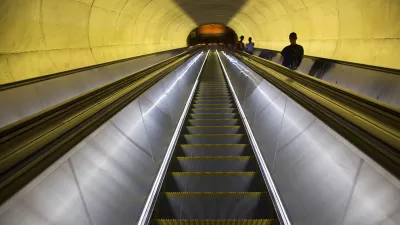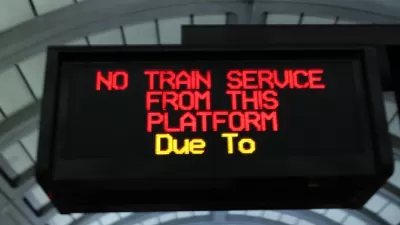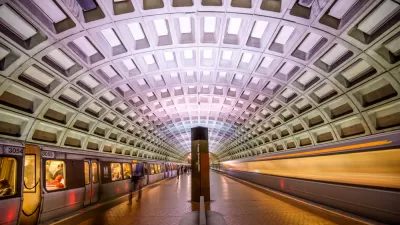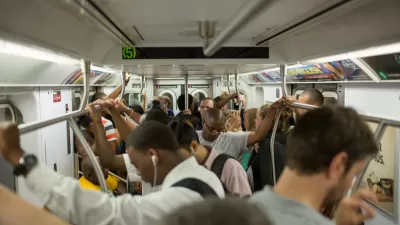For the first time in years, there is talk of expanding service on existing rail lines in the Washington Metropolitan Area Transit Authority (Metro) system.

"Metro officials are seeking to institute a slew of changes in their upcoming budget to win back riders — including charging a flat $2 fare for subway trips taken on weekends, expanding the rush-hour window to include later times on weekday mornings and evenings and increase all trains to their maximum length of eight cars," reports Martine Powers.
The proposed service changes were included in Metro's budget for 2020, which must still be approved by the Metro Board of Directors. The news of the investment in Metro service comes after years of expensive malfunctions, cuts in service, increased fares, and declining ridership.
Funding obstacles must still be overcome to achieve the goals of the proposals, reports Powers. "While there are a number of improvements such as pass discounts and automatic train operations that we can do within the new cap on subsidy growth, the service improvements I am including in this budget will need the region’s support and the Board’s approval," said Metro General Manager Paul J. Wiedefeld in a statement released on Monday. According to Powers, the proposed changes would require more than the increased funding approved earlier this year by Maryland, Virginia, and Washington, D.C.
Specific improvements proposed in the budget include extending Yellow Line Service, running Red Line trains to Glenmont during rush hour, "which would double rush hour service on the northeastern end of the Red Line," according to Powers.
FULL STORY: Metro wants to lower weekend fares and add more evening service to win back riders

Alabama: Trump Terminates Settlements for Black Communities Harmed By Raw Sewage
Trump deemed the landmark civil rights agreement “illegal DEI and environmental justice policy.”

Planetizen Federal Action Tracker
A weekly monitor of how Trump’s orders and actions are impacting planners and planning in America.

Why Should We Subsidize Public Transportation?
Many public transit agencies face financial stress due to rising costs, declining fare revenue, and declining subsidies. Transit advocates must provide a strong business case for increasing public transit funding.

Understanding Road Diets
An explainer from Momentum highlights the advantages of reducing vehicle lanes in favor of more bike, transit, and pedestrian infrastructure.

New California Law Regulates Warehouse Pollution
A new law tightens building and emissions regulations for large distribution warehouses to mitigate air pollution and traffic in surrounding communities.

Phoenix Announces Opening Date for Light Rail Extension
The South Central extension will connect South Phoenix to downtown and other major hubs starting on June 7.
Urban Design for Planners 1: Software Tools
This six-course series explores essential urban design concepts using open source software and equips planners with the tools they need to participate fully in the urban design process.
Planning for Universal Design
Learn the tools for implementing Universal Design in planning regulations.
Caltrans
Smith Gee Studio
Institute for Housing and Urban Development Studies (IHS)
City of Grandview
Harvard GSD Executive Education
Toledo-Lucas County Plan Commissions
Salt Lake City
NYU Wagner Graduate School of Public Service





























